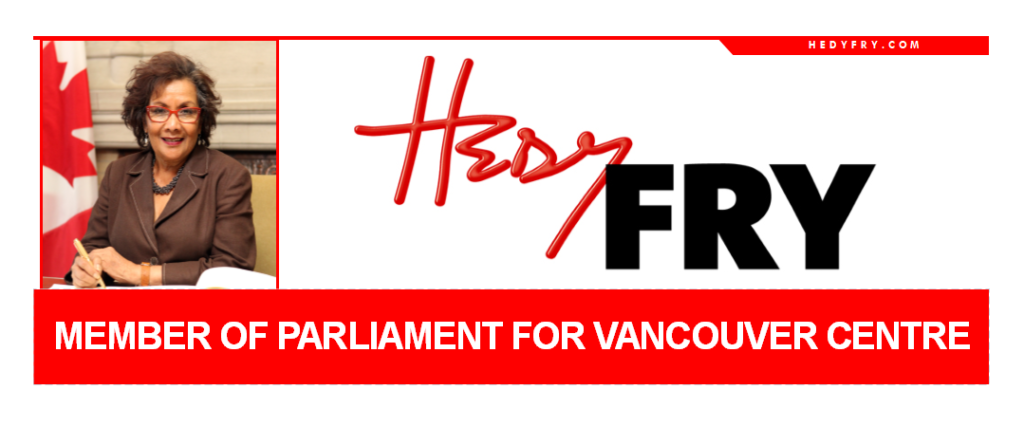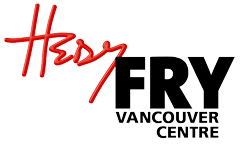
February 1st, 2021
The overdose crisis continues to be one of the most serious public health crises in Canada’s recent history. Tragically, in many communities, the COVID-19 outbreak is worsening this crisis. The Government of Canada continues to support communities across Canada as they respond to drug overdoses and harms during the outbreak.
Today, on behalf of the Minister of Health, the Honourable Hedy Fry, along with the Honourable Sheila Malcolmson, British Columbia’s Minister of Mental Health and Addictions, announced more than $15 million in federal funding for four safer supply projects for people at risk of overdose in B.C. These projects will provide pharmaceutical-grade medication as an alternative to the toxic illegal supply in circulation.
The four safer supply projects, based in Vancouver and Victoria, will provide people with opioid use disorder with a safer, medical alternative from a licensed prescriber. The initiatives will also connect them with important health and social services, including treatment, which may be more difficult to access during the COVID-19 outbreak.
Substance use disorder is a health condition that can be managed and treated if people are provided with services and supports that best meet their needs. However, during the COVID-19 outbreak, people who use drugs are experiencing a number of increased risks, with several jurisdictions reporting higher rates of overdose, including fatal overdoses, and other harms related to an increasingly toxic illegal supply. The Government of Canada is working in collaboration with all levels of government, partners, stakeholders, people with lived and living experience of drug use, and organizations in communities across the country to respond to the outbreak and the overdose crisis.
Quotes:
“The COVID-19 outbreak is worsening the situation for people struggling with substance use disorder in communities across the country. We must do more to address the devastating consequences that the toxic illegal drug supply is having on many parts of Canada. Working with these organizations and the Province of British Columbia, the support we are providing to these life-saving initiatives is another way we are helping people from Vancouver and Victoria, who are at risk of overdose, stay safe and find access to care and treatment for substance use disorder.”
The Honourable Patty Hajdu
Minister of Health
“Substance use disorder is a proven health issue. Street supply opioids have been tainted by fentanyl and benzodiazepines, making them fatal. The number of preventable deaths have steadily increased and evidence shows that one of the surest ways to save lives is through replacement therapy with a safe supply. These four safer supply projects in Vancouver and Victoria using physician prescriptions is one way of preventing deaths and blocking illegal supply chains – one of many actions that need to be taken together.”
The Honourable Dr. Hedy Fry
Member of Parliament for Vancouver Centre
“The pandemic has magnified the effects of an already devastating overdose crisis across Canada. In B.C., we’ve been expanding services as well as advocating for additional federal resources and I’m pleased that Health Canada is working with us to help separate more people from the toxic drug supply. I’m grateful to the frontline organizations whose critical work is so vital to B.C.’s overdose response and the people they serve.”
The Honourable Sheila Malcolmson
Minister of Mental Health and Addictions
“Over the past year, we have had more overdoses than we have seen since the beginning of the public health emergency, in part due to the pandemic. The drug supply is more contaminated than ever and now is the time to talk about a safer drug supply for those people who are consuming illegal drugs. Our SAFER program is a step towards that. Vancouver Coastal Health, PHS Community Services Society and the British Columbia Centre on Substance Use thank the federal government for funding our proposal to support people most at risk of overdose and to ultimately save lives.”
Dr. Patricia Daly
Chief Medical Health Officer, Vancouver Coastal Health
“Providing pharmaceutical alternatives to the highly toxic and deadly drug supply in Victoria, a city that consistently ranks one of the highest in British Columbia for overdose deaths, is an important action. Our project will benefit from the skills and leadership of people with lived/living experience and the support of nurses, system navigators and physicians to save and improve the lives of people in our community we care about.”
Katrina Jensen
Executive Director, AVI Health and Community Services
“We are grateful for the support from the Substance Use and Addictions Program, a timely investment as we continue to battle British Columbia’s opioid overdose crisis. In this context, the expansion of safe drug supply in the Downtown Eastside of Vancouver represents an important step. This program critically expands the holistic nature of the supports we offer, in collaboration with Providence Health Care and Vancouver Coastal Health, at the Hope to Health Complex. These currently include innovative primary health care, selected specialty consultative services, a dedicated oral opioid substitution program, and an ophthalmology clinic, with the ultimate goal of optimizing the control of HIV and viral hepatitis within an environment where mental health and substance use are highly prevalent.”
Dr. Julio Montaner
Executive Director and Physician-in-Chief, BC Centre for Excellence in HIV/AIDS
Head, HIV/AIDS Program, St. Paul’s Hospital, Providence Health Care
“Indigenous people in Vancouver’s Downtown Eastside living with substance use disorder face an ominous risk of fatal opiate poisoning and COVID-19 infection. The Kilala Lelum Health Centre (Urban Indigenous Health and Healing Cooperative) aims to support Indigenous and non-Indigenous people to obtain health and wellness through a partnership approach between primary care providers and Indigenous Elders. Substance Use and Addictions Program funding has given Kilala Lelum the means to provide increased medical care (including injectable opiate replacement therapy) and cultural programs to reduce the risks associated with the current dual health crises.”
Dr. David Tu
Primary Care Co-Lead, and Board Member of the Kilala Lelum Health Centre (Urban Indigenous Health and Healing Cooperative)
Clinical Assistant Professor, University of British Columbia, Faculty of Medicine
Background:
- On July 15, the Minister of Health, along with the B.C. Minister of Mental Health and Addictions and the Chief Medical Health Officer of Island Health, announced approximately $2 million in federal funding for the Vancouver Island Health Authority to operate a four-year safer supply pilot project.
- In the Fall Economic Statement 2020, the Government of Canada committed to help Canadians struggling with problematic substance use by providing an additional $66 million over two years. This funding would support community-based organizations responding to substance use issues, including to help them provide frontline services in a COVID-19 context.
- Health Canada has published a toolkit with guidance for health care practitioners on providing medication as a treatment for substance use disorder or as a pharmaceutical-grade alternative to toxic street drugs during the outbreak.
- Early findings from Canadian evidence show that using pharmaceutical-grade medications, such as hydromorphone, as an alternative to highly toxic street drugs for people at risk of overdose can help save lives and improve health outcomes. It can also help establish an entry to primary care and treatment for people with substance use disorder.
- The four safer supply projects were funded through Health Canada’s Substance Use and Addictions Program (SUAP). SUAP provides financial support to provinces, territories, non-governmental organizations and key stakeholders for programs and initiatives that aim to prevent, treat and reduce harm of substance use issues.



